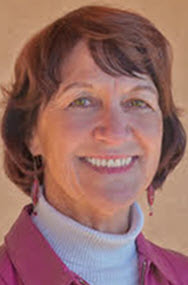 By Mary McPhail Gray
By Mary McPhail Gray
Board Chair
When you walk up to the door of our offices at 105 Bertha — the main door has a colorful heart wreath decorating it. Just inside on the receptionist’s desk is a poster “Follow Your Heart.” Why? Because this is February: Valentine’s Day month and it gives us a chance to express some deep commitments to love.
Our TBH tagline — “Heal * Grow * Empower Yourself” — is really about loving yourself — even in the toughest of times. How hard this is to do! In a culture with great emphasis on independence and self-reliance, any hint of feelings that are the opposite can be viewed as weakness and something to be ashamed of. And in our current economic times, many outside forces create powerful limits on our feelings of pride and success.
At TBH we have a staff of 25 clinicians who themselves represent a great variety of life experiences and bring a variety of skills to the work they have chosen. They have also walked tough paths and know that recovery and survival often depend on a special relationship with a friend, family member or counselor. When they talk about their work, their faces light up as they express their love and commitment to the clients they serve.
Indeed, the work we do in behavioral health is to create a safe, confidential environment with an unconditional caring relationship. For some people, it may be the first time they felt genuinely cared for and safe to be themselves. In the process of counseling, people can learn what a positive relationship feels like and how to ask for help with their goals. It is this deep regard and consistent communication that can allow a client to change those things that are under their control and choice.
In our society, people readily admit when their physical health needs the attention of a medical professional. But even though research suggests that mental/behavioral health has a deeper impact on happiness and life success, we are often extremely reluctant to seek professional help for behavioral health needs. Often, people do not recognize that seeking such help is self-caring and new behaviors can be learned that can change their lives. Individuals do not recognize that their coping skills to deal with trauma represented survival and are deeply rooted in thinking patterns that are no longer useful.
The good news is that skilled behavioral health support is very successful. The bad news is that only about one in three persons that need such support will actually seek it. Giving yourself or someone you care about the message of courage and support to seek help is a valentine of the most precious kind. It means that a still small voice inside of you is saying “I love you” and then taking action to show it.
When I talked to a friend in her 60s about entering counseling, she said, “Well, how will I know the counselor is any good? How will I know it is working?” Indeed, others like her who have never entered a counseling relationship may fear it will be strange and uncomfortable. They do not expect that someone might be skilled and caring enough to listen to their concerns and form a partnership to work on their most important goals.
I have always seen going into counseling as a gift to myself — trusting a trained professional to guide me through one of life tough patches. I have been fortunate to have skilled professionals to work with. My answer to my friend was “If they are asking you questions and helping you think about things you have never considered, it is probably successful.”
When someone you love is really struggling, you can provide a powerful valentine by supporting them in seeking counseling. Approach them with your love — stating your fears about their behavior but also showing that you see their precious qualities and strengths that you want to support. Make sure you tell them that you are confident they can heal, grow and empower themselves.
And then know that Taos Behavioral Health is here for you.
TBH has the largest staff of licensed and credentialed behavioral health professionals in northern NM. We can be reached at 105 Bertha in Taos, at 575-758-4297, or www.taosbehavioralhealth.org.
Mary McPhail Gray is the board chair of TBH and can be reached at mcphailconsulting@gmail.com or 575-779-3126.

